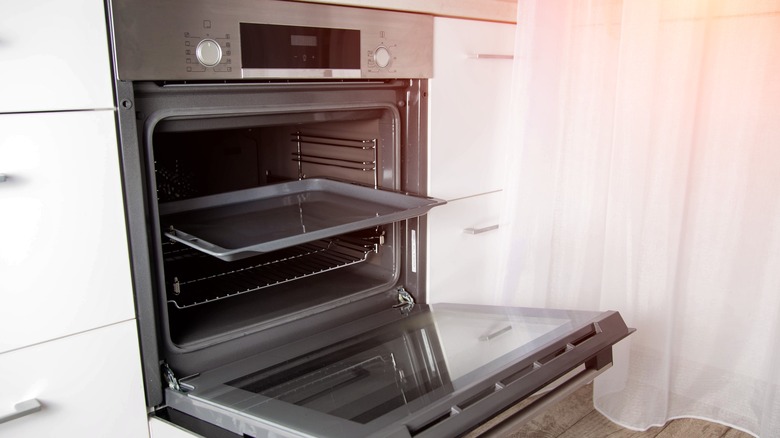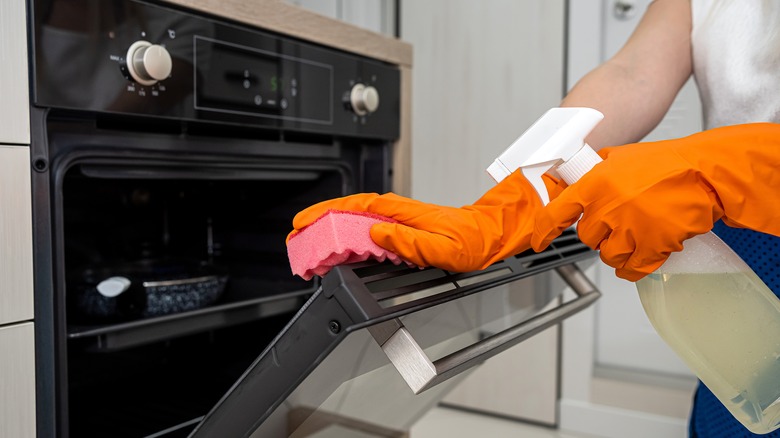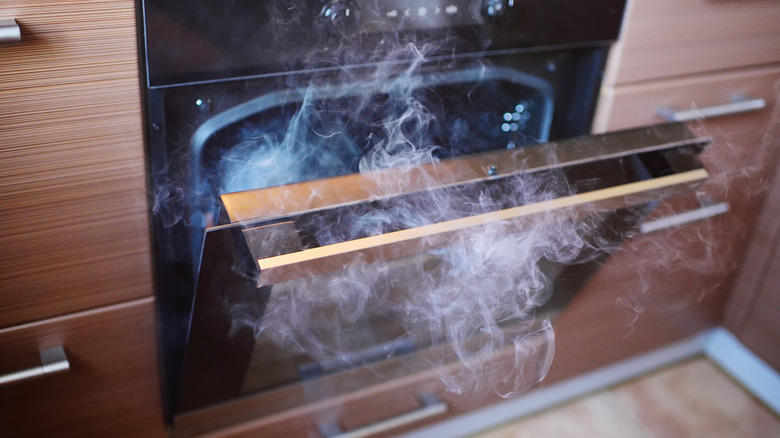An Expert Explains How To Make Sure Your Oven Lasts A Long Time
There's no denying that an oven is one of the most important parts of any kitchen, and it's likely the appliance you put the most thought and consideration into purchasing. After all, you can easily live without appliances such as dishwashers or microwaves, but without an oven, your cooking options are severely limited.
Depending on which oven you buy, they can be fairly costly as well. As HomeServe reports, the average electric or gas model can have a price tag of anywhere from $450 to $2,800. While they're definitely not an appliance you'll need to rebuy that often — Mr. Appliance notes that ovens typically last about 16 years — their longevity does depend on a variety of factors.
In an exclusive interview with House Digest, Dennis Godynuk, founder of Comfort Appliance Repair, shared a few key tips to keep in mind when it comes to your oven. He explains, "you want your oven to last as long as possible because it is an investment in your home and a vital kitchen appliance. An experienced appliance repair technician has the knowledge and experience necessary to provide you with the best advice for making sure your oven does." Paying attention to these key areas will help prevent needing to purchase a new oven for as long as possible.
Clean your oven periodically and replace parts as needed
It's a simple reality that if an appliance is covered in dirt and grime, it will likely have to work a little harder to function properly, and your oven is no exception. Because of what it's used for, the exterior and interior can both become quite messy over time, with certain meals or foods having a penchant for splattering. Consequently, your oven definitely isn't something you want to skip in your regular household cleaning routine.
Godynuk advises that "regular maintenance of your oven is key, this includes cleaning it regularly. To do this, make sure you wipe down the interior surface of your oven (including racks, trays, and door) thoroughly after each use. Additionally, take time to clean the exterior of the appliance at least once a month." If you're wary of using harsh cleaning products in the same areas where your food is prepared, there are plenty of natural, non-toxic ways to thoroughly clean your oven. You just may need a little more elbow grease in certain cases.
In addition to keeping your oven clean, you will also want to make sure everything is functioning the way it should be. "It's also important to replace worn-out parts — such as the thermostat or heating elements when needed — in order to keep your oven running properly and efficiently," adds Godynuk. You should notice when something goes wrong, so just make sure to address it in a timely manner.
Care for cords and watch for problem signs
Unlike countertop appliances such as toasters, you may not actually see the cords of your oven on a regular basis. However, they're also a critical component of the appliance. "If you have cords or wiring connected to your oven, be sure they remain in good shape," says Godynuk. "This means using good quality extension cords when needed and checking that all wiring is tight around connections."
While it's important to schedule time for cleaning your oven or running through a quick checklist of the parts to make sure there aren't any issues, you also want to make sure you're being mindful when actually using the appliance. Godynuk warns, "if something is wrong or malfunctioning with your oven then signs may appear such as strange smells or smoke coming from the appliance, uneven baking temperatures, or other inconsistencies during cooking." Godynuk goes on to explain "if this happens, take action immediately by either repairing it yourself (if possible) or calling a professional repair technician for assistance. Doing so will prevent further long-term damage from occurring due to extended malfunctions within the system."


